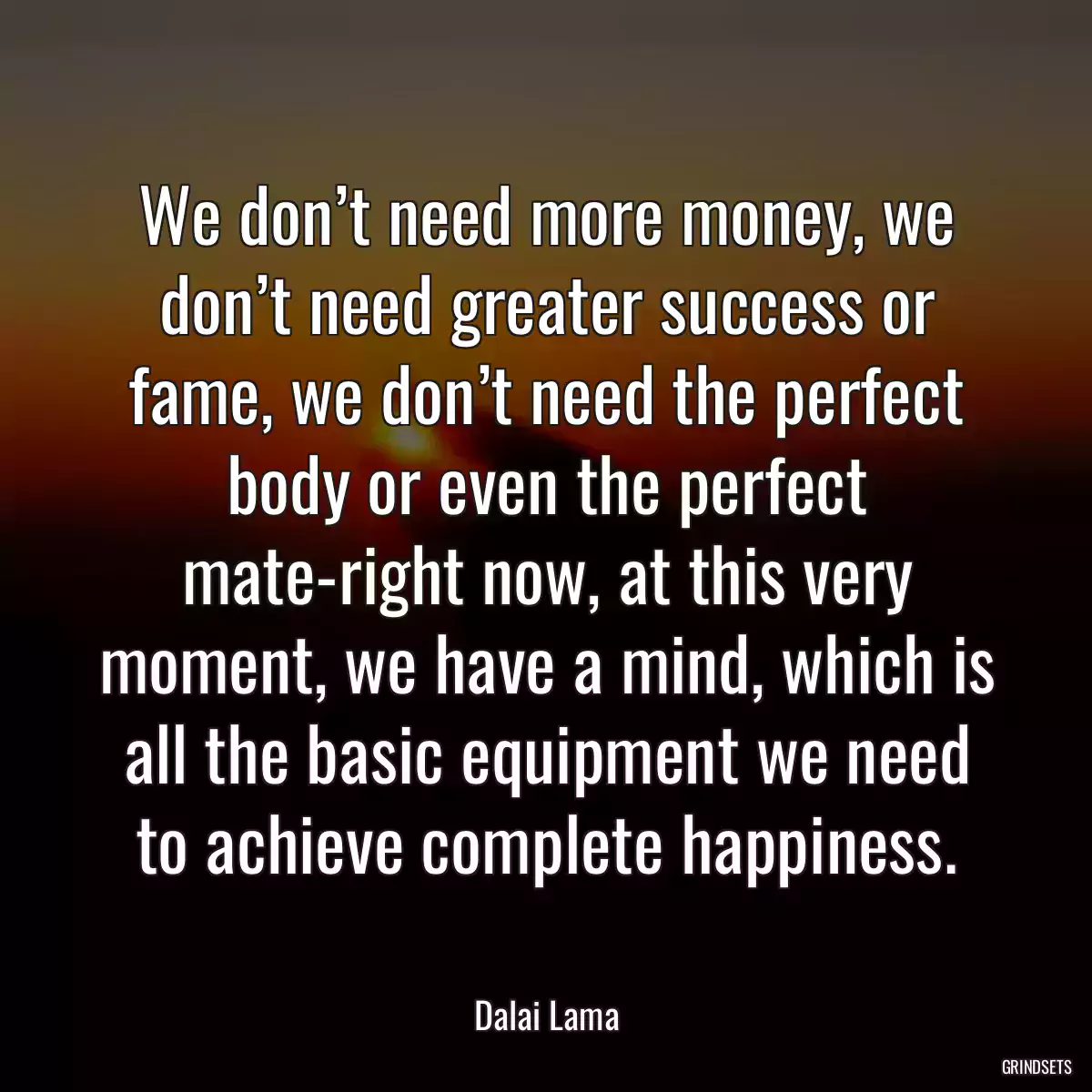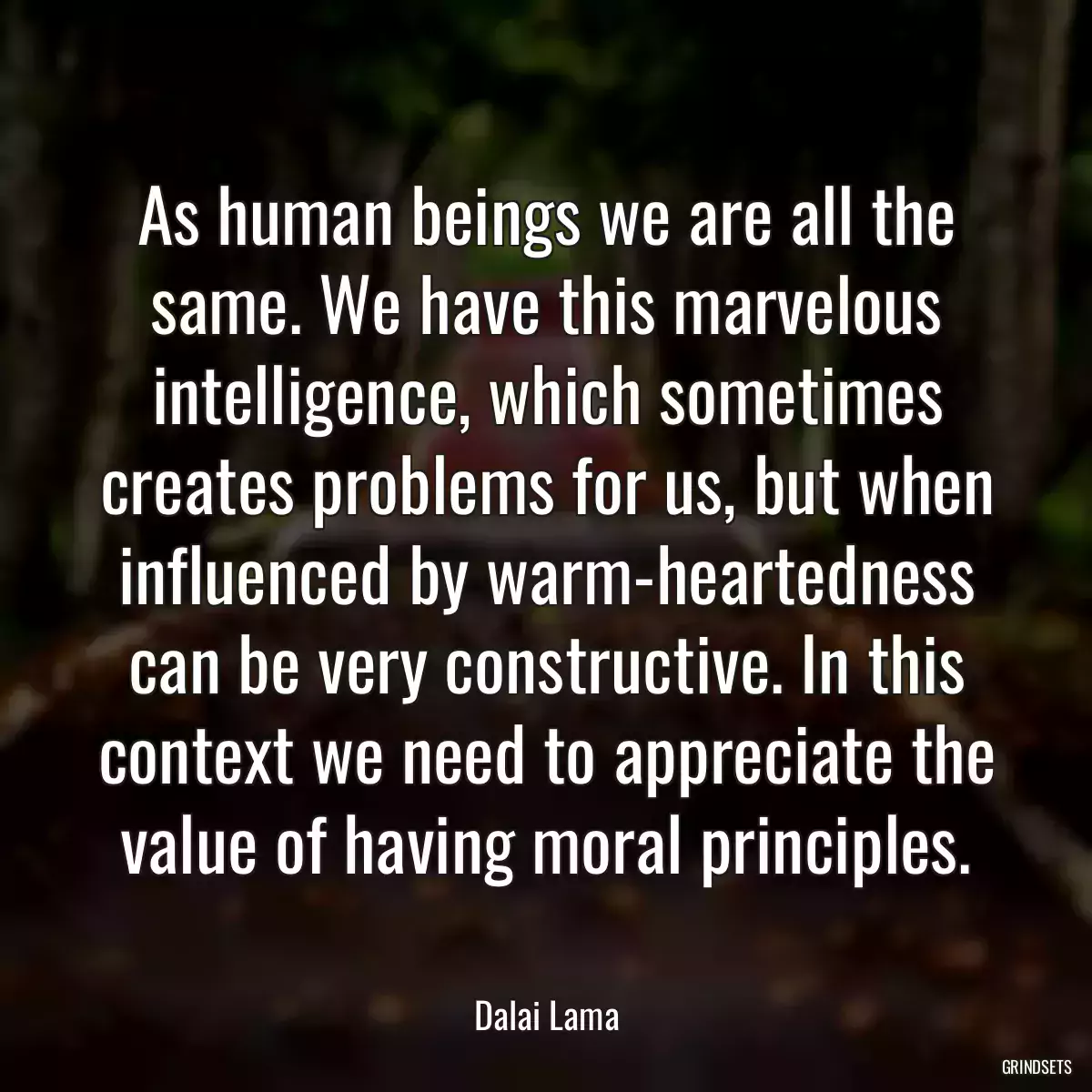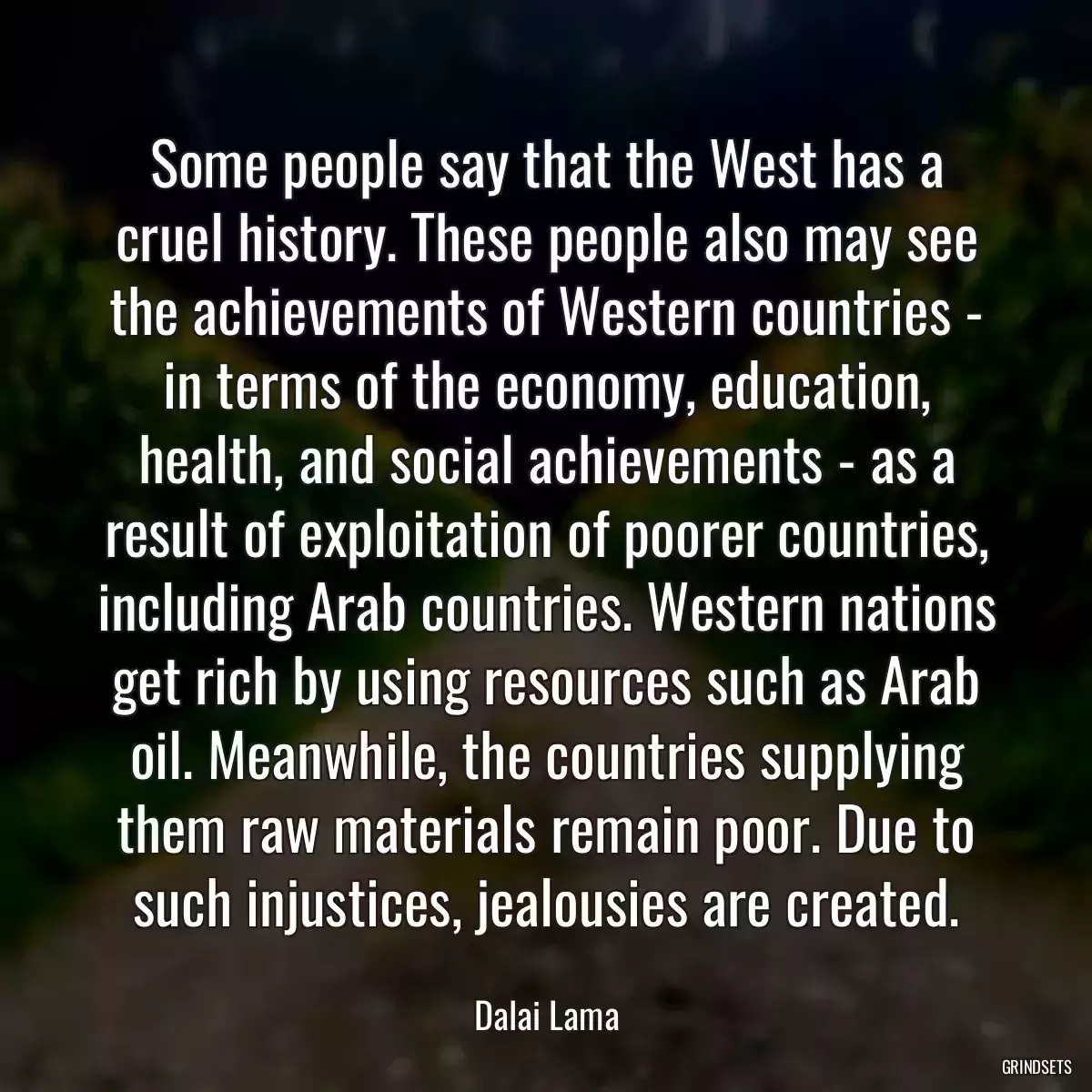
Quotes Dalai Lama - page 11
Find dozens of Dalai Lama with images to copy and share.

All religion teaches the virtues of love, altruism and patience, while showing us how to discipline and transform ourselves to achieve inner peace and a kind heart. Therefore, they are worthy of our respect.
Scientists may study mainly matter but they cannot ignore the human mind, or consciousness: spiritual practitioners may be engaging mainly in developing the mind but they cannot completely ignore their physical needs. It is for this reason that I have always stressed the importance of combining both mental and the material approach to achieving happiness for humankind.
We must recognize that all beings want the same thing we want. This is the way to achieve a true understanding, unfettered by artificial consideration.
You may also like
I want to show that there are indeed some universal ethical principles which could help everyone to achieve the happiness we all aspire to.
Every day, think as you wake up, today I am fortunate to be alive, I have a precious human life, I am not going to waste it. I am going to use all my energies to develop myself, to expand my heart out to others; to achieve enlightenment for the benefit of all beings. I am going to have kind thoughts towards others, I am not going to get angry or think badly about others. I am going to benefit others as much as I can.
Whether one is rich or poor, educated or illiterate, religious or nonbelieving, man or woman, black, white, or brown, we are all the same. Physically, emotionally, and mentally, we are all equal. We all share basic needs for food, shelter, safety, and love. We all aspire to happiness and we all shun suffering. Each of us has hopes, worries, fears, and dreams. Each of us wants the best for our family and loved ones. We all experience pain when we suffer loss and joy when we achieve what we seek. On this fundamental level, religion, ethnicity, culture, and language make no difference.
The many factors which divide us are actually much more superficial than those we share. Despite all of the things that differentiate us - race, language, religion, gender, wealth and so on - we are all equal concerning our fundamental humanity.
However capable and skillful an individual may be, left alone, he or she will not survive. When we are sick or very young or very old, we must depend on the support of others. There is no significant division between us and other people, because our basic natures are the same. If we wish to ensure everyone's peace and happiness, we need to cultivate a healthy respect for the diversity of our peoples and cultures, founded on an understanding of this fundamental sameness of all human beings.

Everyone wants to be happy; happiness is a right. And while on a secondary level differences exist of nationality, faith, family background, social status and so on, more important is that on a human level we are the same. None of us wants to face problems, and yet we create them by stressing our differences. If we see each other just as fellow human beings, there'll be no basis for fighting or conflict between us.
At a fundamental level, as human beings, we are all the same; each one of us aspires to happiness and each one of us does not wish to suffer. This is why, whenever I have the opportunity, I try to draw people's attention to what as members of the human family we have in common and the deeply interconnected nature of our existence and welfare.
I consider myself to be just one among 7 billion human beings. If I were to think of myself as different from others, or as something special, it would create a barrier between us. What makes us the same is that we all want to lead happy lives and gather friends around us. And friendship is based on trust, honesty and openness.
Today we face many problems. Some are created essentially by ourselves based on divisions due to ideology, religion, race, economic status, or other factors. Therefore, the time has come for us to think on a deeper level, on the human level, and from that level we should appreciate and respect the sameness of others as human beings.
If we wish to ensure everyone’s peace and happiness we need to cultivate a healthy respect for the diversity of our peoples and cultures, founded on an understanding of this fundamental sameness of all human beings
Samsara - our conditioned existence in the perpetual cycle of habitual tendencies and nirvana - genuine freedom from such an existence- are nothing but different manifestations of a basic continuum. So this continuity of consciousness us always present. This is the meaning of tantra.
According to Buddhist practice, there are three stages or steps. The initial stage is to reduce attachment towards life. The second stage is the elimination of desire and attachment to this samsara. Then in the third stage, self-cherishing is eliminated
The jealousy that arises from another's achievement is overcome by developing an awareness of and admiration for one's own and other's achievement.
You may also like

Some people say that the West has a cruel history. These people also may see the achievements of Western countries - in terms of the economy, education, health, and social achievements - as a result of exploitation of poorer countries, including Arab countries. Western nations get rich by using resources such as Arab oil. Meanwhile, the countries supplying them raw materials remain poor. Due to such injustices, jealousies are created.
More fundamental than religion is our basic human spirituality. We have a basic human disposition towards love, kindness and affection, irrespective of whether we have a religious framework or not. When we nurture this most basic human resource - when we set about cultivating those basic inner values which we all appreciate in others, then we start to live spiritually.